Digital technology has led to novel treatment approaches being developed in the mental health space. In the US, by utilizing virtual consultation capabilities and digital ADHD tools, independent clinics have a unique advantage to expand their services and adapt to a more flexible care model. How is your clinic ready for this transformation?
Let’s analyze the trends, challenges, and opportunities of telepsychiatry in ADHD care for independent clinics.
How telepsychiatry is revolutionizing ADHD care in America
There’s been a push within healthcare in the last few years to move towards a more flexible care model. Nearly 60 percent of Americans say they would use telehealth services for mental healthcare. This trend has been especially prominent in ADHD care, where traditional in-person clinical models often pose barriers due to scheduling constraints, geographic limitations, or unavailability of reliable resources in underserved localities.
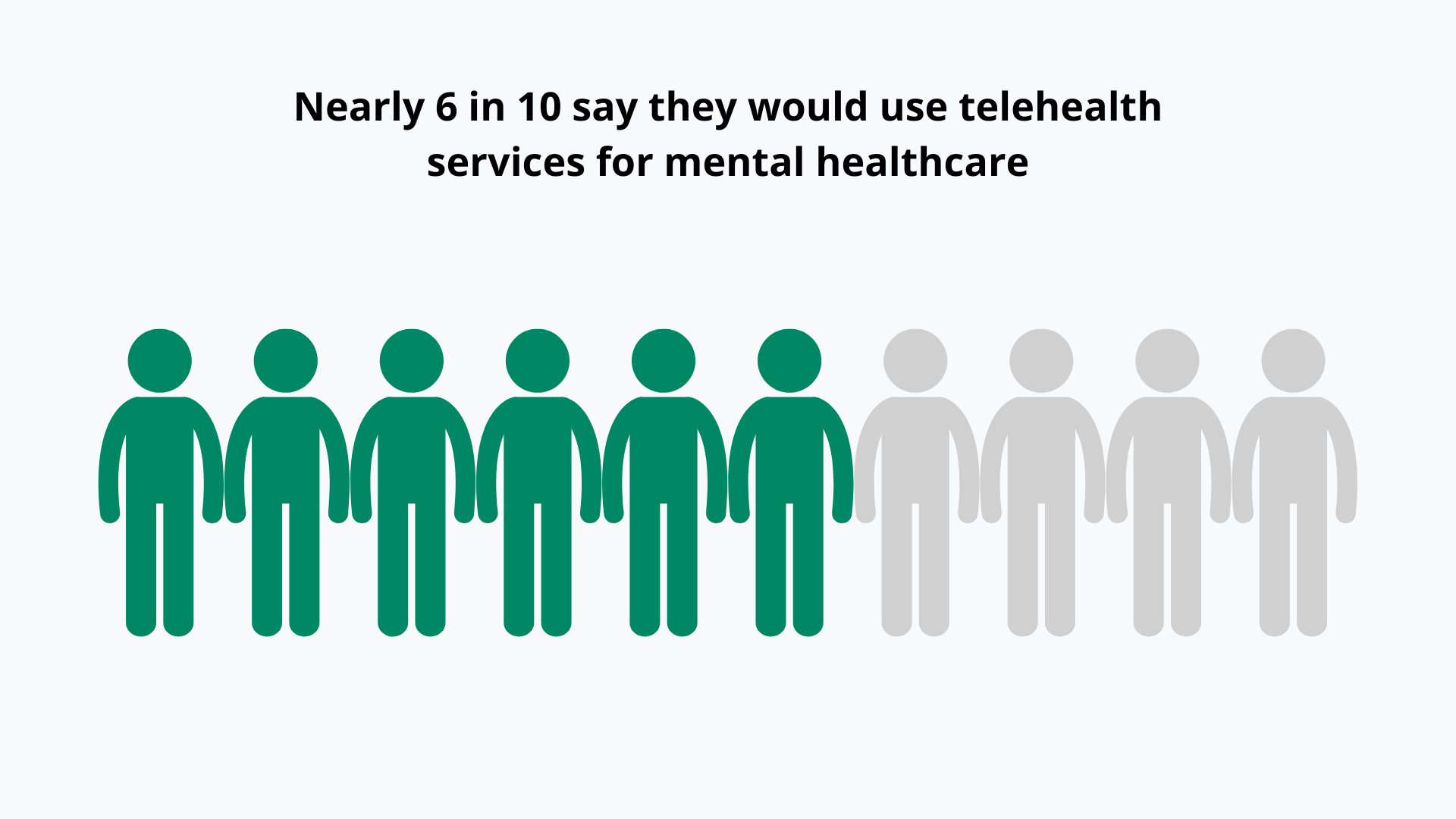
*Source: 2021 survey conducted by American Psychiatric Association (APA)
Elevated exposure
The CDC reported that in 2022, over 7 million US children were diagnosed with ADHD, an increase of 1 million compared to 2016. And adult diagnoses have increased dramatically. 2023 reports show that approximately 15.5 million adults in the US have been diagnosed with ADHD. The rise in awareness and growing demand for ADHD services raises important questions about accessibility, reliability, and sustainability.
Read our guide on the benefits of remote ADHD testing and strategies to overcome potential hurdles that may arise.
Advancements in ADHD care
The past decade has seen a massive rise in ADHD diagnoses. Research around underlying factors has caused an increase in treatment options available for children and adults with the condition. The current ADHD landscape utilizes modern technology like virtual consultations, digital assessments and screening tools, telemedicine, and remote therapy to provide quality care to the growing population seeking ADHD care. We’ve narrowed down two main adaptations independent clinics can implement to keep up with these changing times.
Remote accessibility
Telepsychiatry opportunities help overcome structural and psychological barriers that may arise when seeking ADHD services in traditional clinics. Studies show that digital ADHD testing has the same clinical validity as in-person assessments. Patients can complete assessments from the comfort of their homes, thereby reducing no-show rates and helping reduce administrative burden on the clinic’s end.
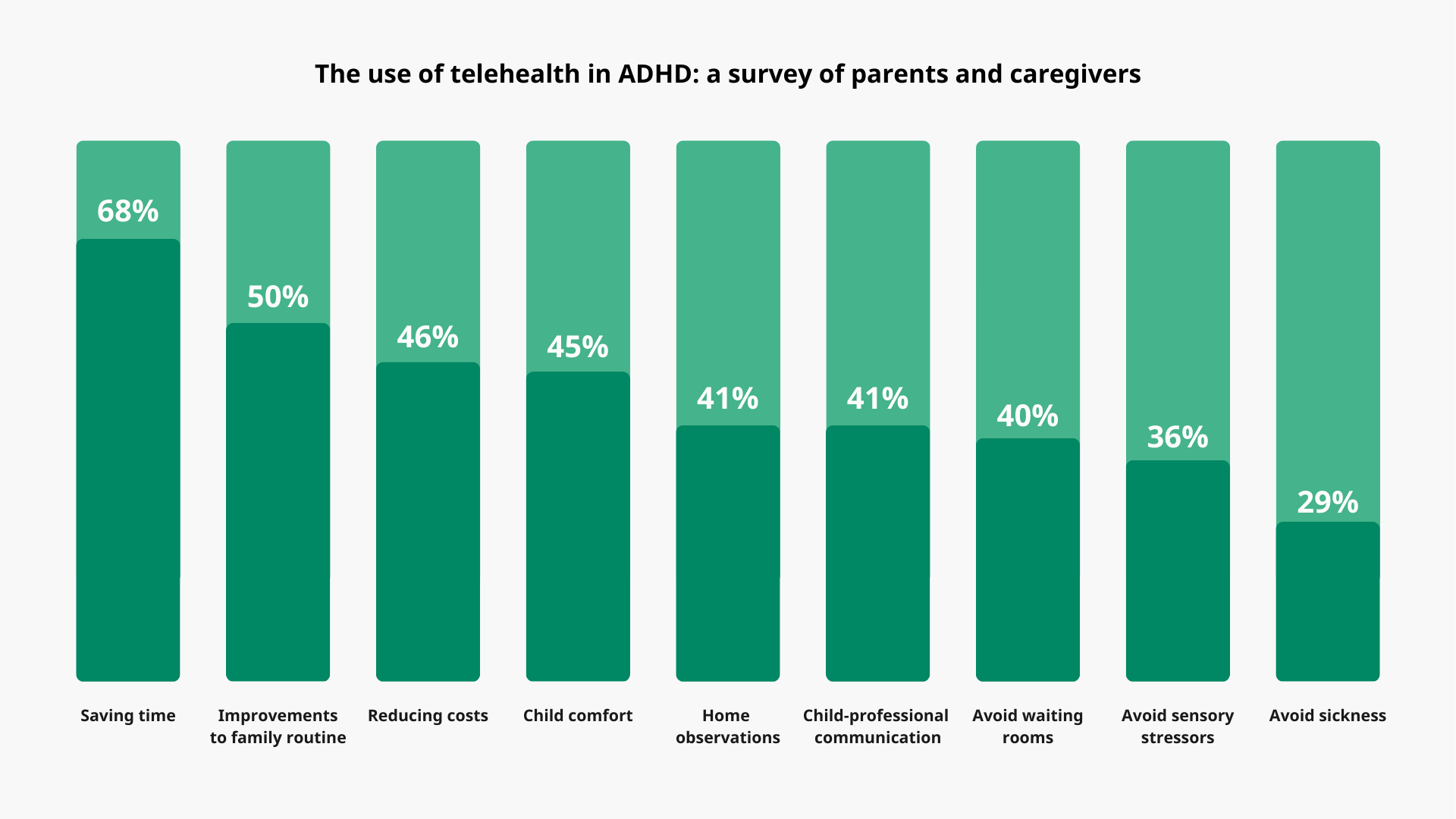
*Source: Galvin E., et.al. (2004)–The use of telehealth in attention-deficit/hyperactivity disorder: A survey of parents and caregivers.
Objective evidence-based solutions
For independent clinics, reliability is crucial to ensure standards of care meet not only patient expectations but also regulatory compliance. Digital ADHD tests for clinics, like QbCheck, are validated to provide evidence-based data, enabling you to make informed decisions. Studies prove that evidence-based digital solutions help improve mental health outcomes regardless of whether the care is delivered in-person or remotely.
Challenges and opportunities for independent clinics
Independent clinics hold a unique advantage–they are not part of a larger healthcare system, meaning they have autonomy over key decisions. This leads to higher clinician satisfaction and lower burnout compared to clinics that are part of large hospital groups and corporations. Let’s look at some of the other advantages independent clinics hold.
Expanded reach
Independent clinics hold a unique position by being provider-owned wherein, it’s easier to address the gaps in mental healthcare like provider shortages, clinician burnout, limited funding and the continually changing regulations. You can adopt telepsychiatry services to address many of these concerns and meet growing care demands.
Virtual care helps expand a clinic’s reach to rural or underserved communities. This also helps address the gap in mental health care availability often faced by these populations. Clinics also have the option to extend their services across states, subject to meeting licensing regulations.
“When the pandemic happened, I was really concerned that I wouldn’t be able to continue to see patients and was not sure if my independent practice would survive. I have been able (with QbCheck) to see even more patients than before, have not had to take patients out of school or work for testing and continued to provide quality care” – April Green, APRN, FNP-BC, Focus of Tampa Bay
Personalized patient-provider relations
Patients and their families look for flexibility and dependability when choosing their healthcare provider. Patients with busy schedules, particularly working adults or parents of children with ADHD benefit from the convenience of scheduling virtual appointments. Utilizing telehealth-friendly ADHD tests, like QbCheck, makes it easier for both a patient and clinician to understand a diagnosis as they come with visual reports, clear instructions and access to normative data. This goes a long way in building strong patient-clinician relationships.
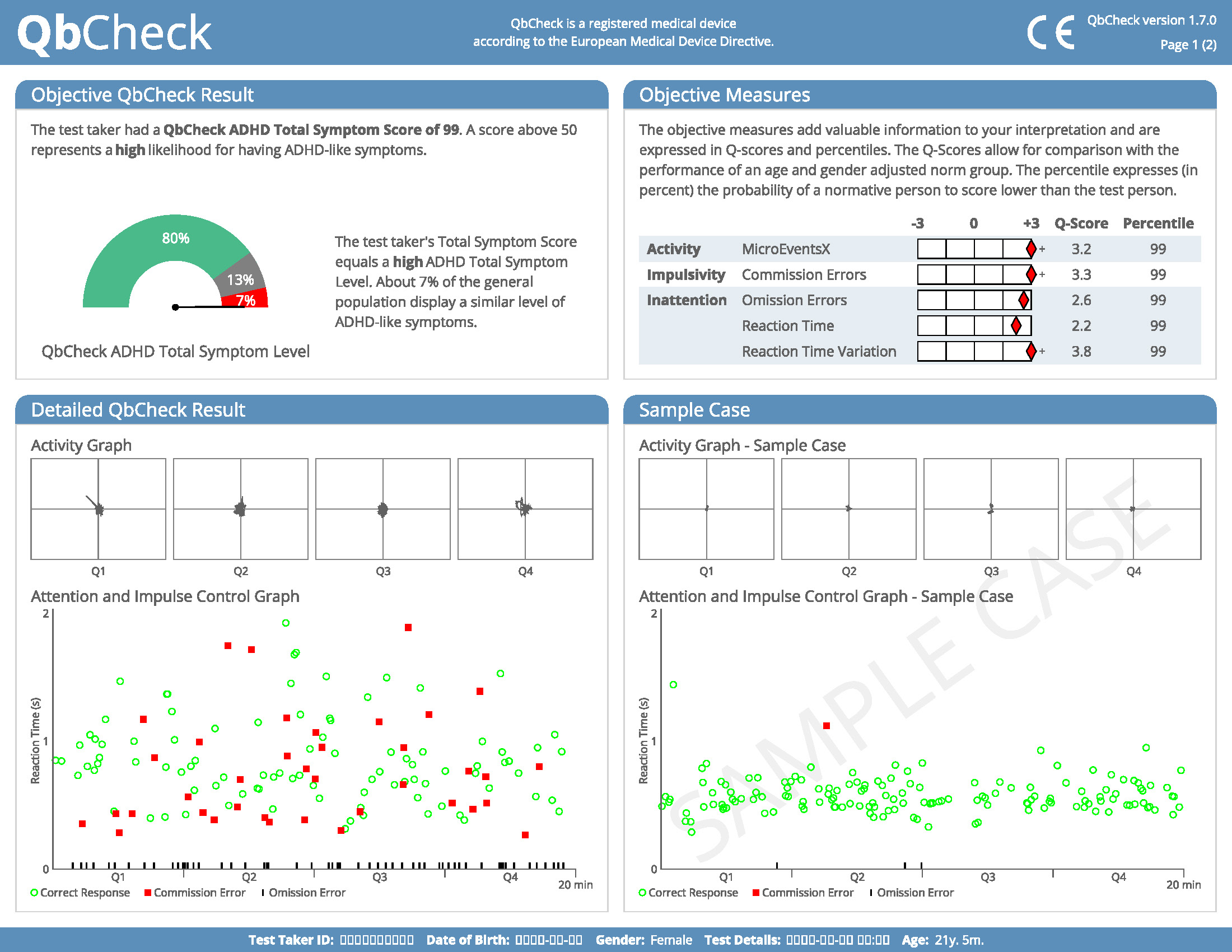
Social anxiety is not uncommon in people with mental health concerns. It comes as no surprise that mental health care is among the fields with the largest adoption of virtual care services in the US. Giving patients telehealth options for testing and treatment adds an element of privacy and goes a long way in reducing stigma and addressing patients’ psychological barriers to receiving proper care.
Demonstrated cost-effectiveness
Telepsychiatry providers can reduce overhead costs like the need for large office space, saving on rent and utilities without compromising on delivering quality care.
A recent study showed a cost reduction between 9% and 39% after implementing objective ADHD testing technology. At a global level, our ADHD test has allowed the NHS in Europe to save an estimated £38.5 million.
Clinics can scale their operations more easily by adding virtual care options to their ADHD pathway. With telehealth, independent clinics can grow their offerings, streamline processes, and increase revenue without additional overhead costs.
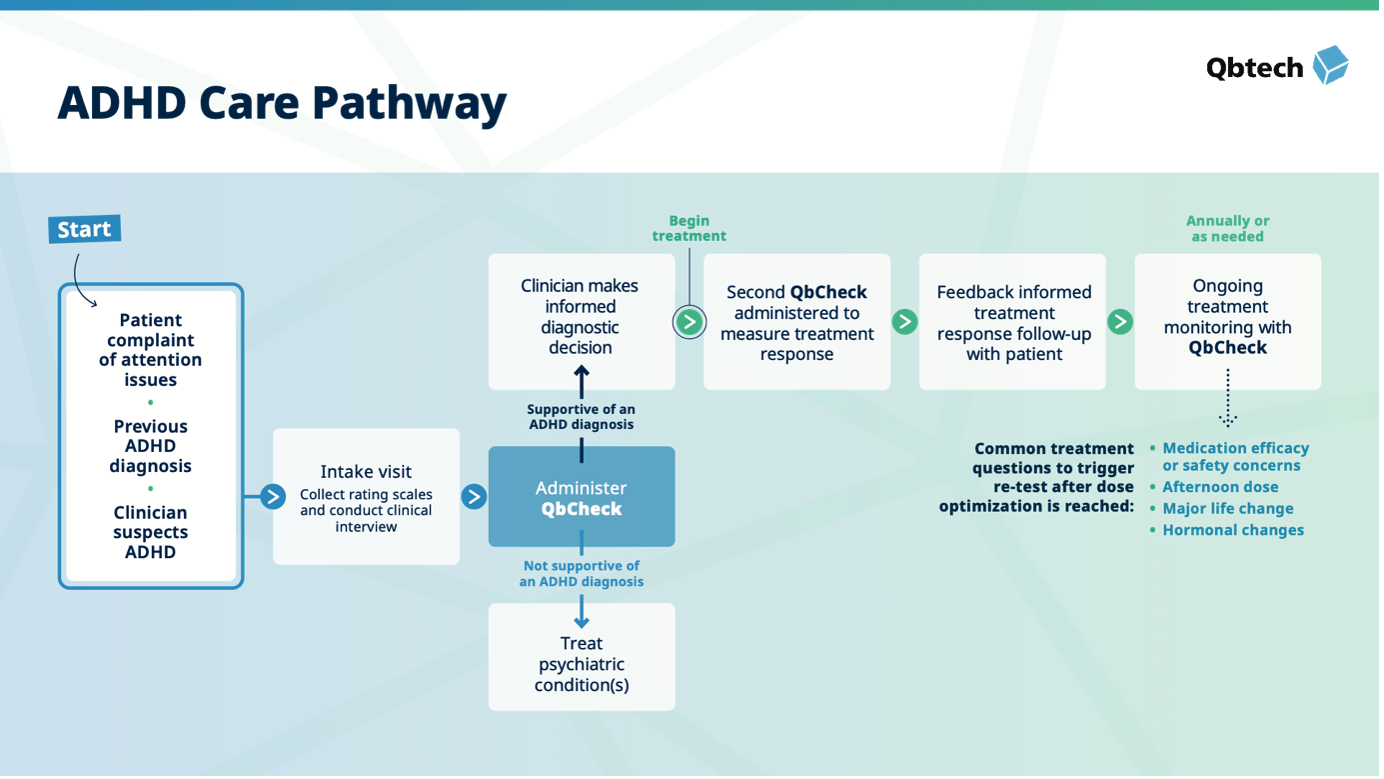
How telepsychiatry gives independent clinics a competitive advantage in the US market
ADHD care is seeing massive growth. In the US, the ADHD and autism clinic market was estimated at 65.13 billion in 2023, and this number is projected to rise at an annual rate of 8.56% between now and 2030. Independent clinics face growing pressures to meet these demands without compromising clinical accuracy and treatment validity. Integrating telepsychiatry solutions into your practice can not only improve patient outcomes but also position you as a forerunner in ADHD care innovations.
Differentiation from traditional clinics
Research supports the effectiveness of telepsychiatry in providing ADHD care to patients. By offering telehealth services, independent clinics can showcase a competitive advantage from brick-and-mortar providers that lack virtual care options.
Data-driven care
Incorporate objective ADHD testing tools so you can offer data-backed care to your patients virtually with improved confidence. By utilizing QbCheck data during the decision-making and medication titration process, telehealth-focused psychiatrists can optimize each patient’s medication and balance their ADHD symptoms at the lowest effective dose.
Sustainability for the future
Telepsychiatry positions clinics to adapt to the growing demand for flexible, patient-centric healthcare. Digital interventions can help bridge the gaps between patients and healthcare professionals, allowing for more frequent monitoring, communication, and assessments.
Keeping pace with regulatory changes
Several clinicians have raised their concerns of not having proper guidelines in the US for diagnosing adults with ADHD. As a step in the right direction, the American Society of ADHD and Related Disorders (APSARD) appointed a new committee to develop diagnostic and treatment guidelines for adult ADHD based on a critical review of the scientific literature. Recent regulatory changes by the DEA have expanded the role of telehealth in ADHD care, bridging many gaps.
Adapting to a more flexible care model and incorporating reliable digital testing technology can help you stay ahead of the curve. On the adoption of our medical technology, according to the AQUA trial, clinics found –
- 77% increase in clinician confidence
- 44% reduction in time when diagnosing
- 22% cost savings
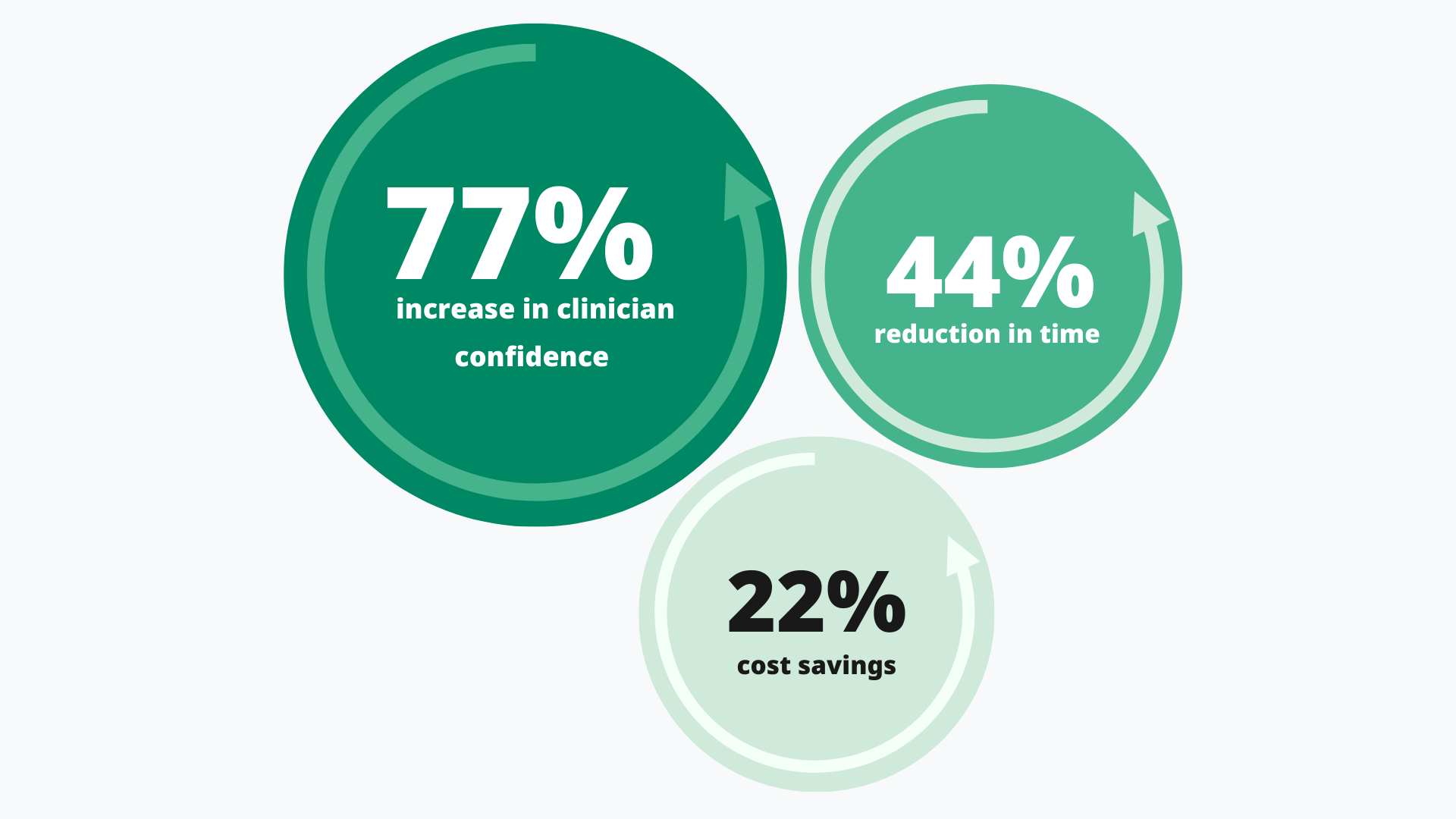
Steps to implement telepsychiatry in your independent clinic
Independent clinics can make simple changes and deliver high-quality care in remote settings. If you’re considering telepsychiatry for ADHD, start with these steps –
- Invest in training: Equip clinicians with skills to administer and interpret digital assessments effectively. We offer several training and support options with expert clinical advisors so that independent clinics are ensured smooth integration and continued success.
- Adopt research-backed tools: Utilize validated digital testing technology, like QbCheck, and ensure your process aligns with DSM-5 criteria.
- Foster patient-centric communication: Build trust with patients and caregivers by explaining diagnosis and addressing concerns. You can use visual ADHD reports to open communication and better inform patients about next steps.
- Offer flexible care models: Combine telehealth with in-person visits and opt for a hybrid care model. This gives you and your patients the option of hands-on assessments when needed. Our objective testing technology supports in-person and remote assessments.
Objective ADHD diagnosis and treatment tools like QbCheck are enabling clinicians to adopt a scalable and standardized approach to data-driven testing. Is your private practice ready for the shift?
Frequently Asked Questions (FAQs)
Q1. What is telepsychiatry?
Telepsychiatry or telemedicine refers to the practice of providing psychiatric evaluations, diagnosis and treatment, sometimes including medication management, remotely using digital technology.
Q2. Is telepsychiatry effective in ADHD care?
There is substantial evidence of the effectiveness of telepsychiatry. Research has found patient satisfaction levels to be high in telehealth settings. Clinicians and other healthcare professionals reported improved confidence and faster results, especially when utilizing objective tests like QbCheck for remote ADHD testing. Telepsychiatry is equivalent to in-person care in diagnostic accuracy, treatment effectiveness, quality of care, and patient satisfaction. To learn more about the benefits and challenges of remote ADHD testing solutions, read our blog.
Q3. What are the benefits of telepsychiatry for independent clinics?
Telepsychiatry offers independent clinics several benefits, including but not limited to increasing patient reach, enhanced convenience with flexible scheduling options, reducing overhead costs and optimizing operations. Virtual ADHD care options help meet patients’ needs for convenient, affordable and accessible mental health services. Telepsychiatry involves a direct interaction between a patient and their provider helping reduce stigma.
Q4. How can telepsychiatry and remote testing reduce costs for clinics and providers?
Compared to traditional in-person clinics, remote ADHD care via telehealth or telepsychiatry reduces overhead costs by minimizing the need for physical office space. It also helps lower no-show rates and eases administrative burden, improving revenue and minimizing wait times at clinics.
Q5. Can you do telehealth for an ADHD diagnosis?
Yes, clinicians and healthcare providers can offer their ADHD services via telehealth or telepsychiatry through clinically validated digital technology like objective testing, rating scales, etc.
Q6. Is ADHD care via telehealth covered by insurance?
Yes, insurance typically covers ADHD telehealth services, but coverage depends on patients’ plans. We advise you to always check with the insurance provider to see if individual plans cover telehealth services.
Telepsychiatry isn’t just a trend—it’s the future of ADHD care. By embracing digital solutions and flexible care models, independent clinics can thrive in an increasingly patient-centric healthcare environment.
Ready to learn more? Discover how QbCheck can help you transform private sector practices.
